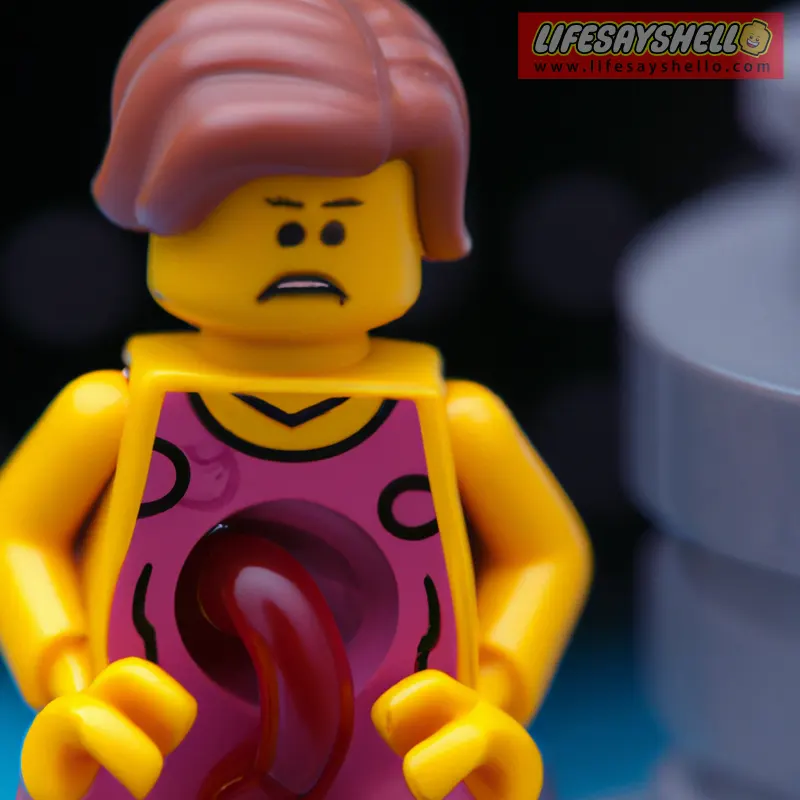Why You Get Gas Pains in Your Stomach and How to Get Rid of Them

Do you ever suffer from uncomfortable gas pains and abdominal bloating? Most of us experience this from time to time after eating certain foods or drinking carbonated beverages. Although gas and belching or passing it can be embarrassing, it’s usually not a cause for concern. But excessive or painful gas in the stomach can interfere with daily life. Read on to learn about the common causes of gas buildup in the digestive tract, along with natural remedies and lifestyle changes to help relieve the discomfort.
What Causes Gas to Build Up in Your Stomach?
Gas in your stomach and intestines is a normal byproduct of the digestive process. Some gas gets created when you swallow air while eating or drinking. Air can also get sucked in when you chew gum, smoke cigarettes, or wear ill-fitting dentures. Most often, gas forms from undigested carbohydrates in your large intestine when bacteria ferment the fiber, starch, and sugars that weren't broken down in the small intestine.
Certain foods are more likely to cause gas and bloating. Common culprits include beans, lentils, broccoli, cabbage, onions, and carbonated drinks. Dairy products can also lead to gas if you have trouble digesting lactose. For some people, wheat products cause abdominal discomfort due to gluten intolerance or celiac disease.
In some cases, gas results from an underlying digestive problem like irritable bowel syndrome (IBS) or difficulty properly absorbing nutrients. Antibiotics can also disrupt the natural gut bacteria and lead to excess gas.
Dietary Triggers for Gas Pains
Identifying the foods and beverages that tend to give you gas is an important first step towards preventing and relieving symptoms. Try keeping a food and symptom journal for a week or two. Note everything you eat and drink along with any gas pains, bloating, or belching that occurs. Look for patterns between your diet and gas symptoms.
Here are some of the top dietary triggers for abdominal gas and bloating:
Beans, lentils, broccoli, cabbage, and other cruciferous veggies: These contain raffinose sugars that can be hard to digest and often cause gas. Introduce them slowly into your diet. Be sure to drink plenty of fluids to aid digestion.
Dairy products: Many people have some degree of lactose intolerance as they get older. Try sticking to low or nonfat dairy, which is easier to digest. You can also take lactase enzyme pills to help break down lactose.
Carbonated drinks: The carbon dioxide bubbles in soda, beer, and sparkling water get released as gas in your intestines. Try switching to flat water or non-carbonated beverages.
Fried and fatty foods: High-fat foods take longer to move through your digestive tract, giving bacteria more time to ferment them. This produces gas that gets released when you belch or pass gas.
Fiber supplements: Too much supplemental fiber can feed the bacteria in your colon, leading to excess gas. Start with a low dose and gradually increase over several weeks.
Sugar alcohols: Foods containing sugar alcohols like xylitol and sorbitol can cause gas or diarrhea in some people. Try eliminating them to see if it helps.
Onions and garlic: These flavorful veggies contain a complex sugar called fructans, which can be difficult for some people to digest resulting in gas. Try cooking them thoroughly.
Lifestyle Factors That Worsen Gas
Along with diet, certain lifestyle habits can increase gas and bloating. Making some changes may help reduce symptoms:
Eat and drink more slowly. Gulping food and beverages causes you to swallow excess air, which eventually gets released from either end!
Skip the gum and hard candy. Constant chewing and sucking introduces extra air into your digestive tract.
Limit carbonation. The bubbles in carbonated drinks and beer build up and get released as gas.
Don't use straws. Drinking through a straw allows you to swallow more air.
Quit smoking. Smoking also causes people to swallow more air and irritates the digestive tract.
Stay active. Exercise helps move everything through your digestive system more efficiently. Aim for at least 30 minutes of moderate activity most days.
Manage stress. High stress can aggravate digestive issues like gas and stomach bloating. Try relaxing practices like yoga, deep breathing, or meditation.
Herbal Remedies and Medications to Relieve Gas
Certain natural supplements and over-the-counter medications can provide relief from gas discomfort:
Peppermint: Peppermint tea can help relax intestinal muscles and allow gas to pass. The menthol also helps reduce bloating. Drink a few cups per day.
Ginger: Ginger has anti-inflammatory properties that can ease digestive distress. Brew some ginger tea or take ginger capsules when you have symptoms.
Probiotics: Probiotic supplements replenish healthy gut bacteria, which aids digestion and reduces excess gas. Look for a broad spectrum formula.
Simethicone: This over-the-counter anti-gas medication helps break up larger gas bubbles into smaller ones that can pass more easily. Brands like Gas-X use simethicone.
Activated charcoal: Charcoal capsules can help absorb intestinal gas. Take them shortly before or after eating gas-producing foods.
Beano: Beano contains the enzyme alpha-galactosidase that breaks down complex sugars in foods to prevent gas formation. Take it when eating problem foods.
Heat: Placing a hot water bottle or heating pad on your abdomen can help relax intestinal muscles so gas can pass. Use a moderate setting for 15-20 minutes as needed.
When to See Your Doctor About Gas
Occasional gas and bloating is normal, but excessive or painful symptoms may indicate an underlying medical issue needing treatment. See your doctor if you experience:
- Gas along with diarrhea, constipation, or other digestive changes
- Intense and persistent abdominal pain
- Unexplained weight loss
- Gas accompanied by bleeding or black/tarry stools
- No improvement despite diet and lifestyle changes
Your doctor can evaluate your symptoms and order tests if needed. Treatment may involve medications, probiotics, dietary changes, or managing an underlying condition like IBS, food intolerances, or small intestinal bacterial overgrowth (SIBO). Most cases of bothersome gas can be improved with the right interventions.
In Conclusion: Gas Happens, But You Can Take Steps to Prevent and Relieve It
It's perfectly normal to have gas and experience occasional bloating, belching or flatulence after eating. But excessive or painful symptoms aren't pleasant to live with. Paying attention to your personal dietary triggers and making certain lifestyle changes can go a long way towards managing gas. Herbal remedies, OTC meds, and heat therapy provide additional relief in the moment. See your doctor if your gas is severe or persists despite these remedies. With the right combination approach, you should be able to reduce unwanted gas and feel more comfortable.




Comments